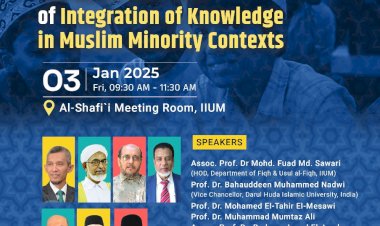Continued Anti-Muslim Rhetoric by Assam CM Sparks Outrage
Assam Chief Minister Himanta Biswa Sarma's recent actions and statements have drawn widespread criticism for their perceived targeting of the Muslim community, particularly those of Bengali origin. Despite his attempts to frame these policies as measures to promote productivity and cultural preservation, many see them as thinly veiled attacks on the rights and dignity of Muslims in Assam. This report seeks to highlight these issues and respond to Sarma’s anti-Muslim rhetoric with facts and perspectives that emphasize the contributions and rights of the Muslim community in Assam.
The recent decision by the Assam state assembly to abolish the two-hour Jumma prayer break, a practice that has been in place since 1937, raises serious concerns about the erosion of religious freedoms under Sarma's leadership. While Sarma claims this decision was unanimous and aimed at enhancing productivity, it disregards the significance of Jumma prayers in the lives of Muslim legislators and citizens. This move can be seen as an attempt to undermine the religious rights of Muslims, forcing them to choose between their faith and their duties in the assembly.
The Assam government's other decision was to repeal the Assam Muslim Marriages and Divorces Registration Act, of 1935, which is another clear example of targeting the Muslim community under the guise of legal reform. This act provided a framework for Muslims to register their marriages and divorces, thereby protecting their personal laws and traditions. By repealing this law, the Sarma administration is effectively stripping Muslims of their rights to legal recognition of their marriages, which is a direct attack on their cultural and religious identity. Sarma’s justification, citing concerns over child marriage, overlooks the fact that this law allowed for voluntary registration, and its repeal will create legal complications for Muslim families across the state.
Sarma's derogatory remarks about "Miya" Muslims of Bengali origin reflect a deep-seated prejudice that has no place in a democratic and secular society. Contrary to his accusations, Bengali-origin Muslims have been integral to the social, cultural, and economic fabric of Assam. They have contributed significantly to the state's agricultural sector, cultural diversity, and communal harmony. Labeling them as communal and fundamentalist is not only unfounded but also harmful, as it perpetuates stereotypes and fosters division. Instead of alienating this community, there should be efforts to include and recognize their contributions to Assam’s rich heritage.
The eviction drives carried out under Sarma's government have disproportionately impacted Muslim communities, particularly those of Bengali origin. These actions, often executed with excessive force, have led to loss of life and property, further marginalizing an already vulnerable population. The renaming of Muslim madrasas as general education schools is another step towards erasing the religious and cultural identity of Muslims in Assam. Education in one’s mother tongue and religious studies are fundamental rights that should be protected, not undermined.
Chief Minister Himanta Biswa Sarma's policies and rhetoric have undeniably contributed to the marginalization of Muslims in Assam. His actions, framed as efforts to protect Assamese culture, often appear to be motivated by an agenda to sideline the Muslim community. It is crucial to recognize that Assam's strength lies in its diversity, and the contributions of its Muslim citizens are invaluable to the state's cultural and social landscape. Rather than alienating Muslims, efforts should be made to foster inclusivity and mutual respect among all communities in Assam. The state can only progress when all its citizens, regardless of their religious or ethnic background, are treated with dignity and given equal opportunities.
Source: The Hindu , NDTV
Disclaimer
The views expressed in this article are the author’s own and do not necessarily mirror Islamonweb’s editorial stance.
























Leave A Comment